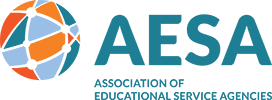Posts by csowder@aesa.us
Congress Passes Bipartisan, Bicameral FY26 LHHS Spending Proposal
On February 3, Congress passed a bipartisan, bicameral Fiscal Year (FY) 2026 Labor, Health and Human Services, and Education funding package, along with 4 other bills and a two-week stopgap for Department of Homeland Security to allow Congress more time to negotiate reforms for immigration enforcement.
Read MoreJanuary 2026: AESA State Examiner
This month’s report for January 2026 examines state activity related to school district consolidation and regionalization.
Read MoreEducation Programs Face Uncertainty Amid Federal Funding Impasse
The Senate failed to pass a negotiated FY26 spending package before the January 30 deadline, leaving funding unresolved for six appropriations bills, including Labor, Health and Human Services, and Education.
Read MoreCongress Releases Bipartisan, Bicameral FY26 LHHS Proposal
Congress released a bipartisan, bicameral Fiscal Year (FY) 2026 Labor, Health and Human Services, and Education funding package as part of a larger “minibus” that includes funding for three other spending bills.
Read MoreAdministration Releases Dietary Guidelines for Americans
On January 7, the Department of Education (ED) granted Iowa a waiver from a variety of Elementary and Secondary Education Act (ESEA) regulations through FY2028.
Read MoreDepartment of Education Grants Iowa Waiver for ESEA State Flexibility
On January 7, the Department of Education (ED) granted Iowa a waiver from a variety of Elementary and Secondary Education Act (ESEA) regulations through FY2028.
Read MoreAppropriations Update: What to Consider as You Budget for the Next School Year
Congress is back in DC with a hyperfocus on Fiscal Year (FY) 2026 spending as the January 30th deadline to fund the federal government looms.
Read MoreDecember 2025: AESA State Examiner
This month’s report for December 2025 examines state responses to the Teacher Workforce challenge.
Read MoreAESA Submits Comments Opposing New Public Charge Rule
AESA, joined by ten other education organizations, submitted comments to the Department of Homeland Security urging them to rescind the new public charge rule.
Read MoreCongress Passes Secure Rural Schools Reauthorization
On December 9, the House passed the Secure Rural Schools Reauthorization Act, which reauthorizes the program for FY24-FY26. As a reminder, the program provides critical resources for counties and schools that are near National Forest Land and are unable to generate property tax revenue.
Read More